大学生网络道德建设——以浙江省大学生为例
VIP免费
浙江财经学院硕士学位论文
I
摘 要
现在随着网络技术的纵向深入和横向拓展,手机移动网络和因特网的相互交
融,网络成了人们日常生活中的重要部分,对人们的生活方式、工作方式、社会
结构和文化价值产生了巨大的影响。网络的发展是一把“双刃剑”。一方面,网络
文化环境和学习方式有利于强化大学生的时代意识,自主意识,学习意识,创造
意识和形成新型的社会交往关系。但另一方面,网络的虚拟性、匿名性、去中心、
去边界、多重认同等特征,加上大学生处在人生观、世界观和价值观尚未成熟的
阶段,可能导致这一群体在参与网络过程中其行为出现偏差,引发道德风险。
近年来,浙江省努力推进国民经济和社会信息化建设,将互联网行业及相关
信息产业的发展作为主导,全力打造“数字浙江”。中国互联网络信息中心发布的
《2011 年浙江省互联网络发展状况统计报告》显示,截至 2011 年12 月底浙江省
网民规模达 3052 万人,网民普及率为 56.1%,在全国排名前列,浙江省互联网发
展在全国处于较为领先的水平。浙江省网民中有 87.3%是10-39 岁的网民。而 10-29
岁年轻网民占 65.9%,高于全国水平。浙江省学生网民所占比例最大,因此,本论
文对浙江省在校大学生的网络道德情况进行调查。
本论文从三个方面对大学生网络道德建设进行阐述:
第一部分主要是理清互联网与伦理价值的相关性,了解相关伦理学理论在网
络道德问题的应用。首先探讨道德在网络中的作用。在网络管理中,道德是个人
行为和组织策划的边界,是行为的最高统领者。其次探讨伦理学是网络道德问题
研究的基础和方法。主要考察以社会效用最大化、道德义务、美德论伦理理论为
基础的几种理论在网络道德问题研究时的应用。每一种理论所代表的价值视角都
为我们对复杂的道德问题分析提供了评判和反思的方法。
第二部分主要是通过问卷的设计、调查和数据分析,探析大学生网络不道德
行为的原因。问卷的设计首先是对于道德、道德行为、网络不道德行为的文献进
行分析;其次,在文献的分析的基础上,开展访谈和开放式问卷调查;第三,对
通过访谈和问卷调查收集的不道德的网络行为项目进行汇总和归类;第四,设计
试调查问卷并进行项目评估;第五,进行试调查;第六,修订定稿。问卷的调查
对象是随机抽取的浙江省 10 所高校的在校大学生。之后对所得数据运用 SPSS 软
件,分别做描述性分析和主成分提取法分析,对大学生的网络使用状况、网络道
德意识、网络不道德行为情况、同侪压力等进行分析和了解。最后,根据分析的
结果并结合网络自身的特征以及大学生的身心状况对大学生的网络不道德行为产
生的原因进行分析。
浙江财经学院硕士学位论文
II
第三部分主要是运用伦理学的相关原理,根据第二部分分析的结果提出大学
生网络道德建设的路径选择。首先要培养大学生的道德自律。要强化大学生作为
道德主体的自我意识,提高大学生的网络道德认知。通过对网络道德情感的培养
使之将认知转化为行为,并在反复的实践过程中坚定意志,最终形成自律习惯。
其次是加强大学生道德教育。高校作为大学生道德教育的主要阵地,不仅要建立
专业的网络德育教师进行新型课堂教育,还要充分了解学生心理和利用校园资源
因材施教。第三是完善网络管理和监控。政府通过立法和监控发挥作用;家庭通
过树立榜样和教育积极引导;学生组织自律团体;社会舆论相互督促,惩恶扬善。
充分发挥社会管理资源,多方协作,形成良好的网络社会环境。
关键词 大学生;网络道德;道德建设
浙江财经学院硕士学位论文
III
ABSTRACT
With the development of Internet technology and the connection between mobile
net and Internet deep in all aspects, it is increasingly becoming a part of people’s daily
life . As a result, our daily life, working style, social structure and cultural value are all
changed tremendously by it. Network development seems like a double-bladed sword.
On one hand, network cultural environment and study mode can help college students
strengthen their time, self, learning and creation awareness as well as their neo-social
communication tie formation. On the other hand, however, it may derail and create their
moral hazard while joining and participating in network, because the characteristics are
virtual, anonymous, no center and boundary concerned and the identities are multiple, in
addition, students are now living in the immature stage of their own philosophy,
worldview and values.
Recently, Zhejiang government is promoting national economy and social
construction of information unswervingly, it is dominated by striving to develop Internet
Industry and related information industry to create “Digital Zhejiang”. Zhejiang had
thirty million five hundred and twenty thousand netizens with the 56.1 percentage rate
at the end of December last year according to China Internet Network Information
Centre(CNNIC). The forefront statistics show that Zhejiang Internet development has
been in a leading position in china. Majority of its users are mainly among age ten to
thirty-nine, which is at 87.3 percentage points, including 65.9 percentage points of
young netizens . However, Zhejiang student netizens take the largest proportion, for this
reason, the questionnaire survey respondents of this paper are all from Zhejiang college
students.
The paper will elaborate the following three aspects of college students’ Internet
moral construction:
In the first part, it will help us clarify the correlation between Internet an ethical
value, so we can acknowledge the application of correlation ethical theory on Internet
moral problems. Above all, it discusses the moral function in network. It is necessary to
put forward that morality likes the supreme leader in management, it is the boundary of
individual behavior and organization. Furthermore, it studies the basic method of ethics
on the research of network moral problems. While probing into the network moral
浙江财经学院硕士学位论文
IV
problems, we mainly focus on social utility maximization, moral obligation and the
ethics of virtue theory methods, etc. Each theory stands for each valuable perspective,
from which we may judge and think about the complicated moral problems, because
they can help us analyze the critical moral analysis. It is an indispensable condition once
the network moral dilemma occurred.
In part two, the thesis is about to find out the reason upon students’ network
immoral behavior through the design, investigation and data analysis of questionnaire.
The design of this questionnaire firstly focus on analyzing researches of morality, moral
behavior and network immoral behavior in order to grasp their concepts and
connotations. Secondly, it has several interviews and open-ended measures on the basis
of researches analysis. Thirdly, it gathers and categorizes the collected immoral network
behavior from previous interviews and questionnaire surveys. Fourthly, designing some
try questionnaires and having project evaluation. Fifthly, trying to carry out the
investigation. The sixth is about revising the final draft. All the survey respondents are
students taken at random from ten colleges in Zhejiang province. After that , the thesis
uses SPSS software to have the describing and the principle component analysis
respectively on those collected data, meanwhile, it also analyzes and understands the
scale of Internet use, the awareness of cyber ethics, network immoral behavior and peer
pressure of students, so on and so forth. At last, it analyzes the cause of network
immoral behavior among college students according to the above analysis results and
combines the characteristics of network with students’ physical and mental health.
In the third part, the paper uses related principle of ethics, and proposes the
selection path of Internet ethics construction according to the analysis results from the
last part. It mentions three paths. First is the construction of subject—developing
students’ moral self-discipline, including strengthening ethical subjective awareness,
improving network moral cognition, raising emotion, exercising willpower and forming
a good habit. Second is the construction—strengthening the moral education of students,
it emphasizes that colleges should create moral education mode and develop
professional teachers of moral education. Third is the social supervision—perfecting
network management and supervisory control, including the management of
government, family, public option and the student group together with the management
of network.
Keywords: college students; network morality; moral construction
浙江财经学院硕士学位论文
V
目 录
第一章 绪论 .................................................................................................................... 1
第一节 论文研究的背景及意义................................................................................. 1
第二节 论文研究领域的国内外研究现状评述......................................................... 2
第三节 论文研究的基本思路及方法......................................................................... 8
第二章 互联网与伦理价值 ............................................................................................ 9
第一节 网络中道德的作用 ......................................................................................... 9
第二节 网络道德问题研究的理论基础 ....................................................................11
第三章 大学生网络行为的道德考察——以浙江省大学生为例 .............................. 20
第一节 研究设计 ....................................................................................................... 20
第二节 数据分析及研究结论 ................................................................................... 24
第三节 网络不道德行为原因分析........................................................................... 42
第四章 规范大学生网络行为道德失范的路径选择 .................................................. 46
第一节 主体建设:培养大学生道德自律 ............................................................... 46
第二节 高校建构:加强大学生道德教育 ............................................................... 47
第三节 社会监管:完善网络管理和监控 ............................................................... 50
参考文献 ........................................................................................................................ 55
附录一 .......................................................................................................................... 59
附录二 .......................................................................................................................... 63
致 谢 .......................................................................................................................... 64
浙江财经学院硕士学位论文
1
第一章 绪论
第一节 论文研究的背景及意义
一、研究背景
互联网的发展是 20 世纪最引人注目的现象之一。在 20 世纪 80 年代初期,互
联网只是为少数科学家和学者所用。互联网的成功与万维网(World Wide Web)的
最新发展是密不可分的。现在随着网络技术的纵向深入和横向拓展,手机移动网
络和因特网的相互交融,网络越来越密切地深入到了人们的日常生活中,巨大地
改变了人们的生活方式、工作方式、社会结构和文化价值。
万维网和整个互联网的快速发展也不是没有社会代价的。虽然很容易发表和
传播真实而有价值的信息,但是也很容易传播虚假的、色情的、诽谤的信息;虽
然很容易复制和共享数字化信息,但是也很容易侵犯版权;虽然很容易跟他人建
立个人联系,但是也很容易监视他人的网上行为,盗取他人的个人隐私。各种威
胁网络安全的行为,影响了网络社会中以及现实生活中的道德行为。道德规范和
自我约束的作用在大学生在参与网络过程中因网络社会的特殊性而弱化。因此,
对大学生在参与网络过程中的不道德行为及其对社会的影响进行系统的梳理,并
在此基础上提出网络道德行为的道德建设方案,成为是社会科学研究必须认真面
对的重要课题。
根据中国互联网络信息中心(CNNIC)的历次调查报告显示,我国青少年网
民的比例在我国网民中较高。据其最新发布的第 30 次《中国互联网络发展状况统
计报告》,截至 2012 年6月底,我国网民总数达到 5.38 亿人,其中学历为大专以
上的网民占五分之一多。网络的发展是一把“双刃剑”。一方面,网络文化环境和
学习方式有利于强化大学生的时代意识、自主意识、学习意识、创造意识和形成
新型的社会交往关系。但另一方面,网络的虚拟性、匿名性、去中心、去边界、
多重认同等特征,加上大学生处在人生观、世界观和价值观尚未成熟的阶段,可
能导致这一群体在参与网络过程中其行为出现偏差,引发道德风险。
二、研究意义
国外网络的发展相对于我国的网络发展情况较为先进,国外对网络的不道德
行为主要依靠法律法规的形式加以约束。在国外网络伦理学作为一门学科已经发
展得比较完善;而我国的网络伦理学还处于起步阶段,虽有不少著作,但其研究
主要还是就理论而理论,缺乏相应的实证分析。本论文的研究主要是理论加实证,
摘要:
展开>>
收起<<
浙江财经学院硕士学位论文I摘要现在随着网络技术的纵向深入和横向拓展,手机移动网络和因特网的相互交融,网络成了人们日常生活中的重要部分,对人们的生活方式、工作方式、社会结构和文化价值产生了巨大的影响。网络的发展是一把“双刃剑”。一方面,网络文化环境和学习方式有利于强化大学生的时代意识,自主意识,学习意识,创造意识和形成新型的社会交往关系。但另一方面,网络的虚拟性、匿名性、去中心、去边界、多重认同等特征,加上大学生处在人生观、世界观和价值观尚未成熟的阶段,可能导致这一群体在参与网络过程中其行为出现偏差,引发道德风险。近年来,浙江省努力推进国民经济和社会信息化建设,将互联网行业及相关信息产业的发展作...
相关推荐
-
建筑工程投标文件范本-(格式)VIP免费

 2024-11-22 17
2024-11-22 17 -
幕墙工程施工组织设计方案VIP免费
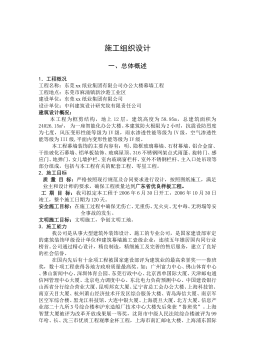
 2025-01-09 6
2025-01-09 6 -
建筑商品砼生产项目创业计划书VIP免费
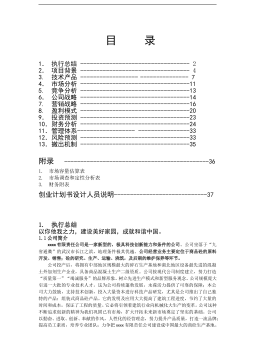
 2025-01-09 10
2025-01-09 10 -
建筑工程商业计划书模板VIP免费
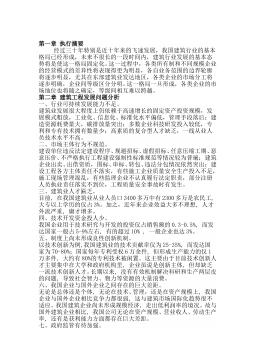
 2025-01-09 8
2025-01-09 8 -
工程项目施工计划书VIP免费
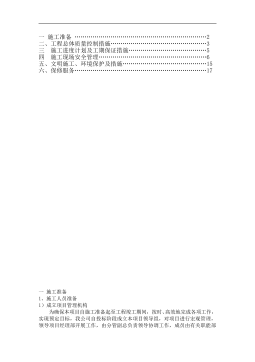
 2025-01-09 6
2025-01-09 6 -
《专业型文档》建筑企业计划书VIP免费
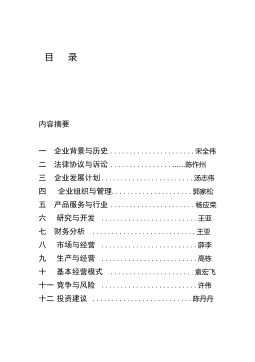
 2025-01-09 8
2025-01-09 8 -
xx水库灌区管道工程水工图纸C1VIP免费

 2025-01-09 13
2025-01-09 13 -
邮政区域仓储配送中心VIP免费

 2025-01-09 8
2025-01-09 8 -
疾病预防控制中心招标文件VIP免费
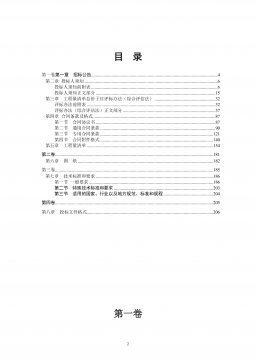
 2025-01-09 13
2025-01-09 13 -
体育健身中心施工招标文件VIP免费
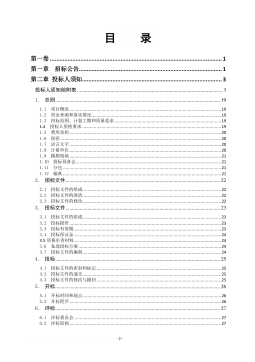
 2025-01-09 10
2025-01-09 10
作者:周伟光
分类:高等教育资料
价格:15积分
属性:63 页
大小:824.61KB
格式:PDF
时间:2024-09-29






